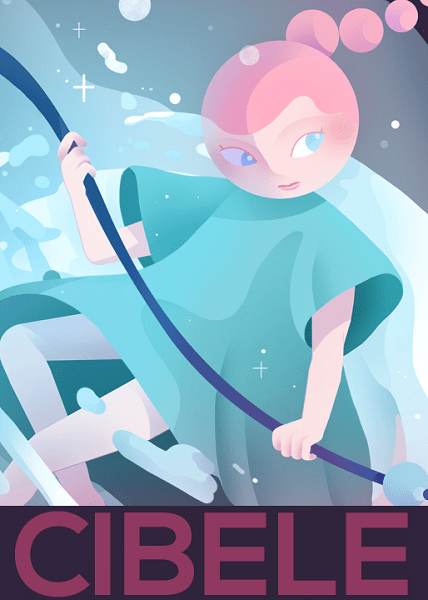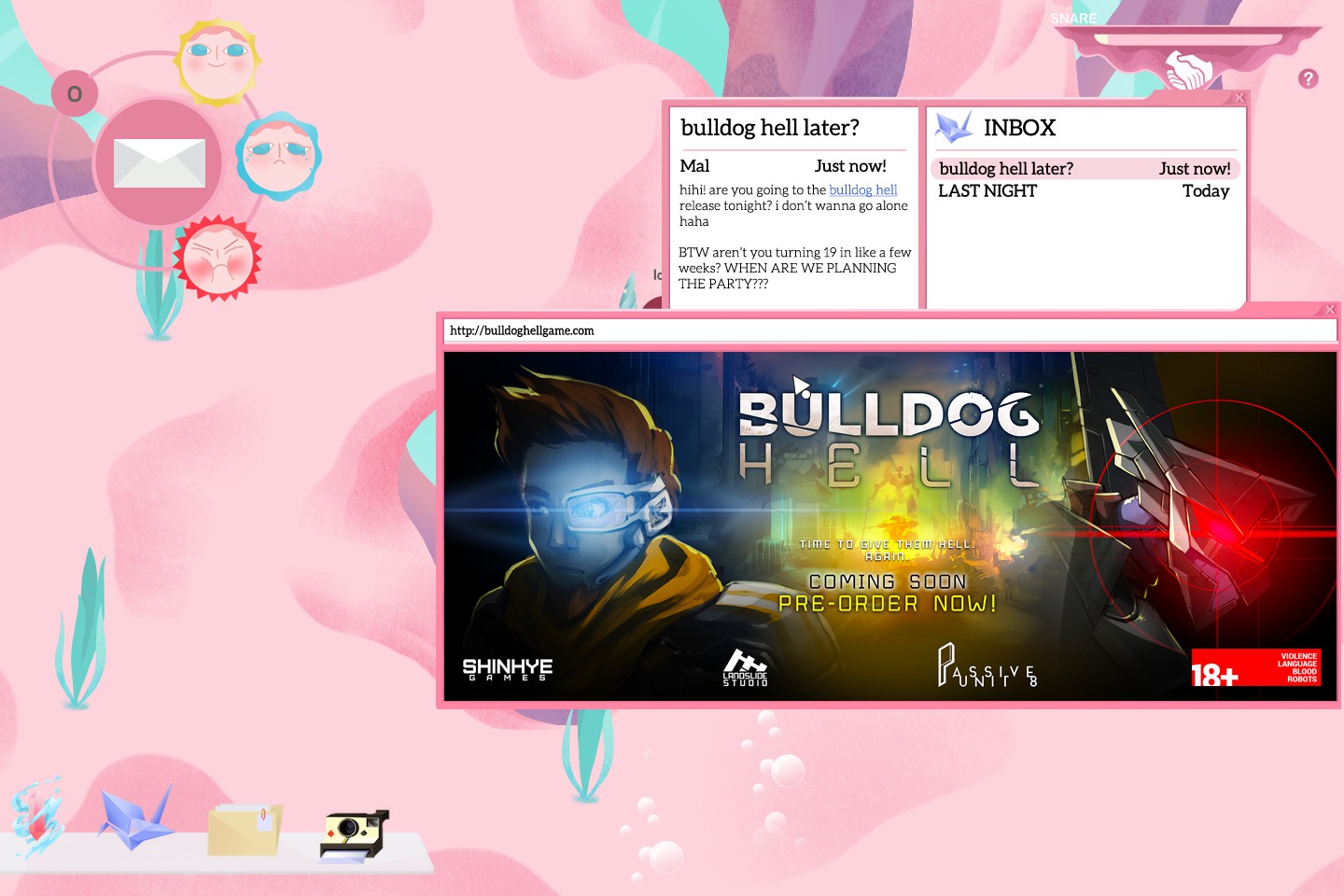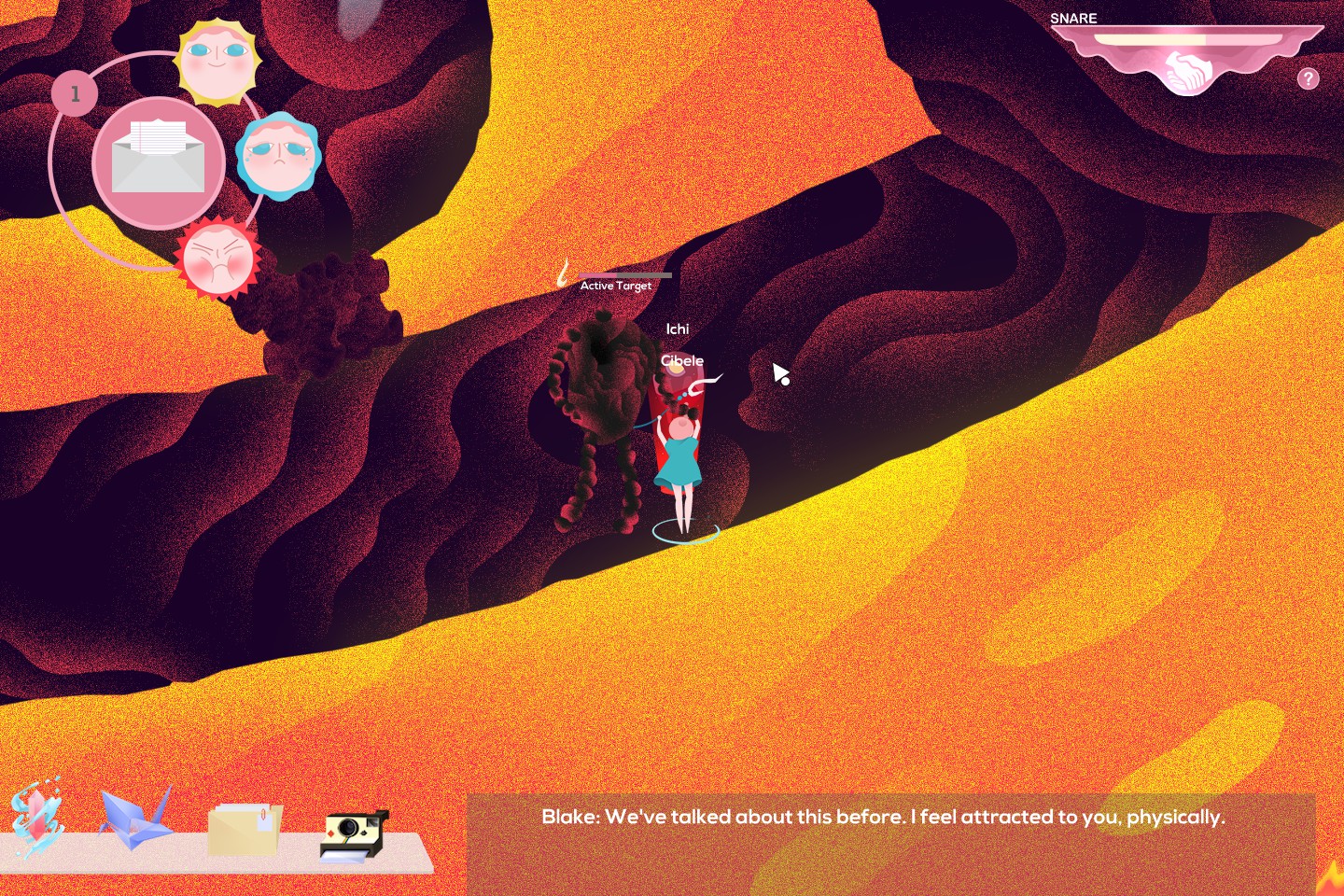
Cibele – A deeply personal, but flawed, tale of online romance
***
Reviewed June 01, 2016 on PC
Leave a comment on Giant Bomb
Cibele is a strange game to review - as a stark, semi-autobiographical story, it sometimes feels that critiquing the game is in some way passing judgement on a person's life. That this feeling kept cropping whilst planning and writing this view highlighted the game's key strength - the main character, Nina, resonated with me so strongly (in a way that I did not expect) that I didn't want to criticise the game. Sadly, the narrative failed to have any lasting impact, and a flawed design hindered my appreciation of the story.
Cibele is a highly narrative-focused game - the gameplay falls somewhere between a visual novel and a simple point-and-click adventure game. The game marries three styles of scene together to tell its story - short FMV segments, a faux PC desktop user interface that can be explored to discover some back story for Nina, and voice calls set against a fictional MMO called Valtameri. At its heart, Cibele is a simple tale - girl meets boy online, they fall for each other, but they live across a continent from each other - but the way the confusing issues raised by such a situation are handled elevate the game beyond these simple roots.
The faux desktop is the strongest part of the game; giving me the freedom to just rummage around files created by Nina at various times in her life is what lead to the character feeling so believable. Having grown up with two sisters, I repeated ran across photos, blog entries, and other files that felt familiar, despite having no prior knowledge of the character - I multiple times read a file and just though "Yep, that seems about right". A discussion of Final Fantasy X2 instantly teleported me back to a conversation from around that time I had completely forgotten about. From just these small digital fragments, it was easy to picture who Nina is, and where she is in her life, and telling part of the story in that manner worked surprisingly well.
Unfortunately, the blending of these different styles, despite each being well done if taken on their own, led to the game feeling somewhat disjointed. The FMV cutscenes show the characters from a third-person viewpoint, and the player controls Nina's character during the MMO segments. The desktop interface is ostensibly a first-person view of Nina logging into the MMO, but digging around old files leads to it feeling more like a third-party has come in to take a peek. This switching of viewpoints breaks up the narrative, and I believe that it would have a strong emotional pull if it stuck more rigidly to one of the viewpoints. If the third-person viewpoint was only used after the two meet in real life for the first time, it could have conveyed a sense of uncertainty and loss of control, but instead just makes it harder to feel invested in the characters.
The fictional MMO sequences were also somewhat harmful to the pacing of the story. The clunky controls lead to me not being particularly diligent in choosing the next target (essentially click a target that your ally is attacking to do damage, but the character pathing is imperfect and your ally is frequently out of view), and the story does not continue until you taken out enough enemies and/or the boss. If you are paying close enough attention, the voice call will move on at about the same time that the enemies are killed, but I was frequently left killing enemy for no reason waiting for the next part of the call (only filler lines, such as 'Nice hit!' or 'Come east!', are played during this time). In a longer game, this would only be a minor issue, but for a game I finished in around 90 minutes, 3-5 minutes with nothing happening feels like an eternity.
On the whole though, I did enjoy the story told in Cibele. It is a deeply personal look at discovering love online, and portrays in a both touching and honest way. In a semi-autobiographical story such as this, it would be easy to paint one's self as being completely in the right at all times, and put all blame for mistakes on others. Nina Freeman, however, does not do this - both the character of Nina, and the person for whom she falls, Blake, feel like real people. Both make mistakes, and stumble through this experience that is new to them in a way that feels natural and not contrived for the game.
Freeman deserves a lot of credit for portraying this emotionally complex scenario in a way that feels believable, and for not presenting an idealised view of the past. She also demonstrates a surprising amount of character development over such a short period. Blake comes off initially as the sort of arrogant, self-centred person one often finds on the Internet, but you quickly realise that he is just insecure and trying to paper over his anxieties. It is well-handled, and is surprisingly subtle.
Predictably, the online romance does not end successfully. I personally did not like that the game did not make any attempt to handle the aftermath for either character, but I cannot deny that the final scene hit hard and was a valid stylistic choice. As with many games of this nature, your personal experiences and preferences will determine if you like how the game ends or not.
Overall, Cibele is a flawed game with a well-told story and certainly worth a playthrough. It didn't have any lasting impact on me, as the basis premise is well-worn territory, but that doesn't detract from the fact that this is both well-written and performed. I don't hesitate to recommend the game on a narrative level, but have some issues regarding the gameplay and presentation. Tightening up the controls, or tweaking how the game is presented, wouldn't have gone amiss.
[A note on scoring - I flipped back and forth between 3 and 4 stars multiple times whilst preparing this review. I finally settled on 3 stars as I feel that the player's appreciation of the style and story is key to enjoying this game]


